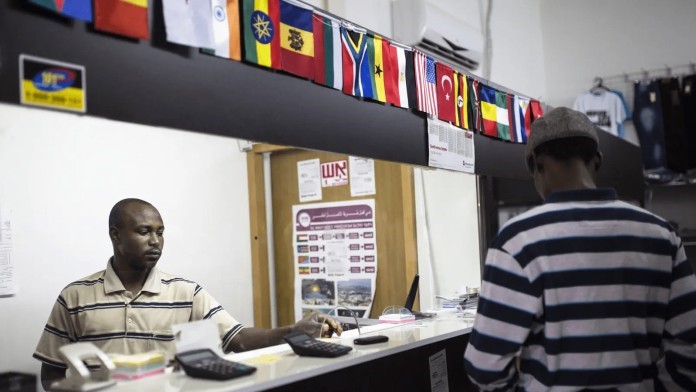Remittances or Cross-Border Money Transfer is an exciting part of the financial services ecosystem, especially in Africa.
It is dynamic, chock-full of innovation and has a very clear impact on the lives of customers.
Remittances in Africa arguably came to the fore in the 90’s, when Dr. Kofi Amoah and other visionaries convinced Western Union and MoneyGram to enter the African market. Fast forward 30 years later, the war stories and the hard numbers tell a great story.
According to the World Bank, remittances into sub-Saharan Africa remains strong at about $42 billion per annum, with growth despite COVID.
It can however be argued that the revenue model for remittances has plateaued.
The traditional over-the-counter model for person to person transfers has been disrupted massively by direct-to-account and direct-to-mobile integrations. This has led to a shrinking of margins, with the entry of several micro-players in the industry.
SENDWAVE and WORLD REMIT, which initially had direct-to-mobile models are however riding the wave, recording growth and rapid market acquisition in ‘squeezed’ markets like Ghana and Senegal.

Over-the-counter remittances led the way in Africa
Remittances for trade
This paper argues that there is another growth path for remittances in Africa.
The proposal here is very simple. It argues that the success of the person-to-person, retail, over-the-counter remittance model be applied to support trade transactions, especially for micro and small enterprises in Africa.
It is a well-known fact that payments in Africa, especially for intra-African trade is slow, opaque and expensive. From personal experience and anecdote, one has heard the horror stories of citizens trying to transfer money from Ghana to Nigeria to pay for e-commerce items, school fees, et cetera.
These efforts have often taken at least five working days, with several visits to the bank branch. I heard the fascinating tale in Guangzhou of how traders in Accra mobilized funds, sent it via a designated person to Lome so they could undertake outbound Western Union, Ria or MoneyGram transactions to China, to pay for ordered goods.
Using other transfer rails from Ghana took about 2 months or meant the cash being carried by hand, on a flight. The point is that there is a use-case and potential for adapting remittance rails for trade, and this should be encouraged.
Indeed, companies like MoneyGram offer bill payment services in their other operations off the continent, and it thus stands to reason that this could easily be carried over.
The SaaS Model and White Labels
A low-cost, high-impact model to achieve this can be found in the current innovation where the major remittance companies are offering their rails on a Service-as-a-Software basis.
This means players in Africa could innovate and package their own proposition that could then ride on these rails. Thus, rather than undertake the complete Research and Development for a bespoke cross-border payment service, financial service players (including quasi-state / regional initiatives) could enter partnerships with the key remittance companies and develop their own white labels that can then be marketed aggressively.
This will significantly reduce the go-to-market run-way and deliver exponential impact as regards AfCTA and other regional trade aspirations. It is estimated that such a move, could immediately unlock a $70 billion windfall, in intra-African trade.
Enter the BoG Sandbox and PAPSS
It must be said that this ideation must be subject to real-world boundaries, especially as regards risk mitigation and compliance. The role of the Central Bank is critical here, to guide innovation. That is why the establishment of the Bank of Ghana (BOG) Payments plus Fintech directorates and the BoG initiative on sandboxes is exciting. The time is now for fintechs, banks and policy makers to innovate to push forward on this next step of remittances, taking inspiration from the 1990’s, where against all odd, remittance services were introduced in Africa.
Another key factor that is a positive variable in this regard is the Afreximbank initiative, the Pan African Payment and Settlement System (PAPSS).
Governor Addison of the Bank of Ghana in a recent presentation at the Ghana Academy of Arts and Sciences aptly made the point on PAPSSS when he said; “It is expected to facilitate remittances, offer securities settlement and provide opportunity for Point of Sales and Automated Teller Machine transactions. Direct participants of the PAPSS are the national central banks and regulated financial institutions, as well as payment service providers. At present, PAPSS has undertaken successful integration from test and development environment to production environment for all the six (6) countries of the WAMZ, namely Gambia, Ghana, Guinea, Liberia, Nigeria and Sierra Leone. Ghana, Nigeria and Gambia have successfully carried out controlled live transactions.”
From all indications, PAPSS, if it continues on this development trajectory, will be the game-changer in this new phase of facilitating in-&-cross-border remittances and payments.
In conclusion, one must borrow again from Governor Addison’s presentation; “Cross border payment systems are not easy to implement. First cross border governance arrangements differ. Secondly laws across different jurisdictions may differ and multiple AML CFT regimes including KYC requirements can become a challenge.”
But therein lies the opportunity for real impact and profit. It will be exciting to see how the next chapter of remittances will pan out in Africa, and my bet is on Remittances for Trade.
The Writer:
Kofi Akyea currently serves as Head of Marketing, Corporate Communications and Customer Experience at UMB, Ghana’s oldest merchant bank. His career has included stints as marketing lead for MoneyGram, in Anglophone Africa (+Angola, Mauritius and Mozambique). He is passionate about financial inclusion in Africa.
Latest Stories
-
19 steps for getting over even the most devastating breakup fast
3 hours -
8th Ghana CEO Summit launched with focus on AI transformation, economic diversification
3 hours -
Prof Opoku-Agyemang has not been given a fair appraisal – Ablakwa
4 hours -
Rainstorm wreaks havoc in Keta and Anloga districts, residents count their losses
4 hours -
Global Plastics Treaty negotiations begin in Ottawa as countries converge on phasing out problematic plastic uses
4 hours -
Support energy alternatives adoption to sustain businesses – GUTA tells government
4 hours -
11th DRIF opens in Accra with a call on governments to focus on digital inclusion
4 hours -
Stakeholders outline plans at RE4C Coalition’s General Assembly in Accra
4 hours -
Women Need ‘shock observers’ for active political participation – Ex-Bauchi Assembly Member
4 hours -
2024 polls: Stop fighting over positions in Mahama’s next government – Asiedu Nketiah
4 hours -
Although people may not always listen to the lyrics, there’s still a market for rap in Ghana – E.L.
5 hours -
Passengers appeal to transport operators to officially announce new fares
5 hours -
Damongo: About 400 NPP Members resign over Minister’s alleged meddling in chieftaincy affairs
5 hours -
Next NDC government will pay special attention to women – Naana Opoku-Agyemang
5 hours -
Amerado is singing and it’s good he’s doing that – Lyrical Joe
5 hours

